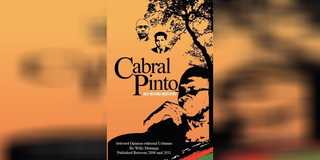Mutunga offers Kenyans another set of his Wisdom

These days politicians spend endless hours of speeches reminding audiences of the kinds of legacies they would wish to leave once they are out of office.
They speak of grandiose projects and programs. Railways, airports, hospitals, schools and universities, roads, markets or even toilets are budgeted for, and often built.
In some cases, in the end the legacy is one long barely used road to nowhere or a hospital with little or no medication and overworked medical personnel. Indeed, our politicians rarely leave a legacy of thought.
One struggles to get books or essays by our politicians or senior public servants. Individuals serve in various government offices for years and retire without as much as writing a letter to the editor of the local newspaper.
Willy Mutunga, Kenya’s former Chief Justice and first president of the Supreme Court of Kenya, has defied the trend. Mutunga was writing for (and to) the public as well as the academic world many years ago. His latest book, a collection of newspaper articles that he wrote between 2004 and 2011, confirms his position as a leading public intellectual in Kenya.
These essays were published under the pen name, Cabral Pinto; hence the title of the collection, Cabral Pinto, Willy Mutunga Under Cover: Selected Opinion-editorial Columns by Willy Mutunga Published Between 2006 and 2011 (Vita Books, 2022).
Who are public intellectuals and what do they do? Public intellectuals are women and men who commit their lives to think out loudly with their communities, if we can bend the phrase. These individuals are not afraid to express their views on subjects of interest to the public.
Sometimes they may speak on topics that are ‘taboo’, thus risking their public image and lives. But by doing so, they are partly speaking out the thoughts of many (or few), which need to be aired publicly. They may not claim to be wise women or men, but in some sense, they can be taken as sages.
What Willy Mutunga offers Kenyans in Cabral Pinto, Willy Mutunga Under Cover are his thoughts on a broad range of topics. The editors of the essays have made the reader’s work easier by grouping them under 12 key topics. The reader can pick their choice.
There are essays on revolution; free speech and revolution; identity, sexuality and public morality; alternative political leadership; patriotism and nationalism etc. Mutunga writes without restraint. He writes to provoke, to affirm, to question, to restore memory, to remember, among other reasons.
In Cabral Pinto, Willy Mutunga Under Cover Mutunga is clearly concerned about the state of the nation – as of each moment when he wrote the articles. Notions of justice, unity, equity, security and safety, heroism, constitutional order, elections, morality, thread through the articles. It appears as if every time Mutunga wrote these articles, there was a moral question haunting him. Thus, each one of these essays would appear like an attempt by Mutunga to respond to a nagging personal issue, but one of public significance.
There is a whole generation, if not generations, or Kenyans today that doesn’t know who Timothy Njoya or Wangari Maathai or JM Kariuki or Elisha Stephen Atieno Odhiambo or Yash Ghai, among other Kenyan heroes are.
Mutunga memorialises these men and women in the essays, recalling to mind who they were and why their lives, thoughts and actions should matter today.
Mutunga reminds the reader that one doesn’t need to write a biography or history book on the men and women who have stood up for their principles publicly, principles that would serve the public good, but one can remember them, and therefore teach others a lesson in as short an essay as a newspaper article.
This is the challenge that Cabral Pinto poses to Kenyans; the challenge to engage publicly in order to be heard, and to contribute to a national conversation.
For, how can Kenya be an inclusive nation-state when the voices of some Kenyans are muted? How can only political parties debate about democracy? How can the law remain the preserve of lawyers? Shouldn’t priests invite even laymen to a conversation on morality? Should the rest of the country simply trust economists and public policy makers on matters of the economy?
These rhetorical questions emerge from the 145 essays in Cabral Pinto, Willy Mutunga Under Cover. The essays are a worthy celebration of the philosophies of struggle, democracy, justice and freedom of the two men from whom Mutunga borrowed the pseudonym: Amilcar Cabral and Pio Gama Pinto.
These men led anticolonial struggles. They were nationalists who rejected colonial politics based on racial and class differences. These men were assassinated for believing in, preaching about and seeking a better world for all. How many today are willing to pay such a price for the few liberties we still enjoy?
Cabral Pinto, Willy Mutunga Under Cover was launched on December 13 at the Kenya National Cultural Centre, Ukumbi Mdogo.
The writer teaches literature, performing arts and media at the University of Nairobi. [email protected]





